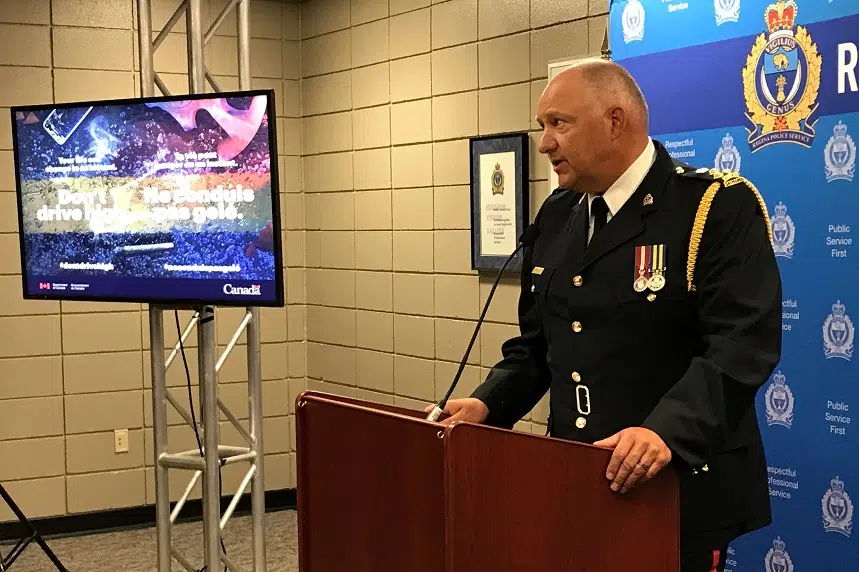The federal government is hoping drug users “puff, puff” and then “pass” on driving, and it’s giving a big chunk of money to police in Saskatchewan to catch those who don’t.
The government is committing up to $5.4 million over five years to police in the province for the fight against drug-impaired driving specifically. It’s part of the $81 million that was announced earlier for police across the country.
“This means law enforcement will be better equipped with the training, the tools, and the technology necessary to enforce the new legislation,” said federal Public Safety Minister Ralph Goodale, who made the announcement at Regina police headquarters Friday.
The money will be used to purchase new approved drug screening devices to test suspected impaired drivers, and on training for officers to run the equipment and to better identify drivers who are impaired by drug.
Regina Police Chief Evan Bray said the money is appreciated because training is expensive.
“It’s lengthy, it’s intensive (and) it’s a level of expertise for our officers that makes them extremely valuable on the road, but it costs money to get that done,” explained Bray.
And it’s not just a one-time expense. Bray said the technology keeps changing and getting better and as that happens officers will have to be retrained using the new equipment.
According to a media release, the province has an objective to have a third of front-line officers trained in Standardized Field Sobriety Testing in the next three years and to train another 100 officers as Drug Recognition Experts over five years.
It was mentioned at the announcement that it was a good time to be talking about impaired driving, being on the Friday ahead of a long weekend. Bray said there’s no question impaired driving is a challenge here.
“Our officers, unfortunately, see first-hand the devastation that can happen, lives being lost, families being torn apart, and communities suffering with grief,” said Bray.
Since cannabis legalization, people have been arrested for drug-impaired driving for things like meth and cocaine, but not cannabis.
The money will also be used to improve data collection, which Goodale said will help the province analyze trends, see gaps, and get a clearer picture of the problem.











